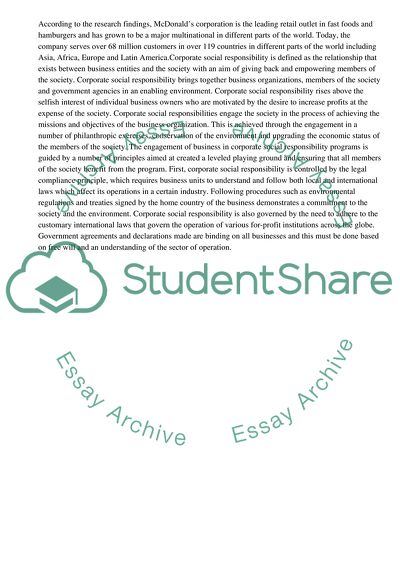Cite this document
(“Corporate Social Responsibility in McDonalds Essay”, n.d.)
Corporate Social Responsibility in McDonalds Essay. Retrieved from https://studentshare.org/management/1662281-focusing-on-a-single-organisation-select-an-ethical-environmental-or-social-issue-that-the-organisation-addresses-critically-discuss-and-evaluate
Corporate Social Responsibility in McDonalds Essay. Retrieved from https://studentshare.org/management/1662281-focusing-on-a-single-organisation-select-an-ethical-environmental-or-social-issue-that-the-organisation-addresses-critically-discuss-and-evaluate
(Corporate Social Responsibility in McDonalds Essay)
Corporate Social Responsibility in McDonalds Essay. https://studentshare.org/management/1662281-focusing-on-a-single-organisation-select-an-ethical-environmental-or-social-issue-that-the-organisation-addresses-critically-discuss-and-evaluate.
Corporate Social Responsibility in McDonalds Essay. https://studentshare.org/management/1662281-focusing-on-a-single-organisation-select-an-ethical-environmental-or-social-issue-that-the-organisation-addresses-critically-discuss-and-evaluate.
“Corporate Social Responsibility in McDonalds Essay”, n.d. https://studentshare.org/management/1662281-focusing-on-a-single-organisation-select-an-ethical-environmental-or-social-issue-that-the-organisation-addresses-critically-discuss-and-evaluate.


